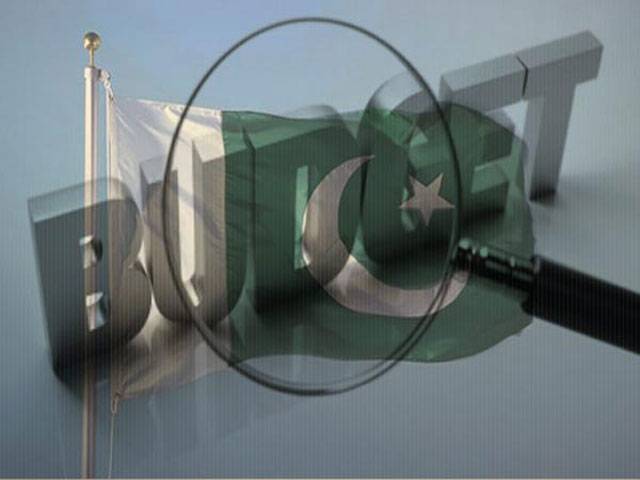Muhammad Nadeem Bhatti
A budget is a financial plan for a defined period of time, usually a year. It may also include planned sales volumes and revenue/Tax, resource quantities, costs and expenses, assets, liabilities and cash flows.
Companies, governments, families and other organizations use it to express strategic plans of activities or events in measurable terms.
A budget is the sum of money allocated for a particular purpose and the summary of intended expenditures along with proposals for how to meet them. It may include a budget surplus, providing money for use at a future time, or a deficit in which expenses exceed income.
According to democracy in each province. Federal is bound to offer the expansible payment for the limited future planning through their elected persons by the people of a country.
It is a regulation to distribute according to the population and most suffering aspects. Naturally it should be accountable too.
A budget helps in planning actual operations by forcing managers to consider how the conditions might change and what steps should be taken now, and by encouraging managers to consider problems before they arise. It also helps to co-ordinate the activities of the organization by compelling managers to examine relationships between their own operation and those of other departments.
Other essentials of budget include control resources, communicate plans to various responsibility centre managers, motivate managers to strive to achieve budget goals, evaluate the performance of managers, provide visibility into the company’s performance and for accountability.
In summary, the purpose of budgeting is to provide a forecast of revenues and expenditures, that is, construct a model of how a business might perform financially if certain strategies, events and plans are carried out. Which also enable the actual financial operation of the business to be measured against the forecast. And lastly, it establishes the cost constraint for a project, programme, or operation.
The budget 2017–18 was the federal budget of Pakistan for the fiscal year beginning from 1 July 2017 and ending on 30 June 2018.
It was presented by Finance Minister on 26 May 2017 at the National Assembly with a total outlay of ₨4.75trillion.
The budget was presented following a protest of the Pakistan Kissan Ittehad, demanding subsidies on fertilizers and electricity bills, at D Chowk in Islamabad.
The budget proposed a 10.0% increase in the salaries and pensions of federal government employees and an increase in the minimum monthly wage from ₨ 14,000 to ₨ 15,000.
The allocation made for Benazir Income Support Programme stood at Rs121 billion for 5.5 million beneficiaries. The defense expenditure of Rs920.2 billion (or 19.36% of total budget outlay) which was around 7% higher than it was in the outgoing year was set aside.
Although the population of Pakistan is getting thickly populated, now the time has come to think seriously to manage and how to fulfill their daily wages and to maintain their food on daily bases. Pakistan needs to be more industrialized instead of previous fiscal years.
Due to some passive policies Pakistan had to face the trade deficit which hit a record level of $30 billion in the first 11 months of 2017-18, showing a jump of 42 per cent as compared to the same period in the previous financial year.
Exports have declined by three per cent to $18.5 billion while imports have gone up by 21 per cent to $48.5 billion.
Never before in the country’s history have imports been over two-and-a-half times of exports as they are now.
This unprecedented trade deficit has occurred despite the prevalence of relatively low international prices of our biggest import, oil.
In these circumstances Pakistan needed to be familiar with some other countries like their import and exports but hot whether which is caused and called an enemy for business. This impossible mission could not come in the regulatory way to maintain the difference of electricity.
Although it has been served as a hot issue for the previous ruling parties and the existing one as well.
But positive results are yet to come to bring a vital change for the ordinary men of Pakistan.
According to last budget labor pay has been raised by 14 to 15 thousand but the social problems like no control upon on retailers has become a swear issue to led a life.
Due to these miserable circumstances law n order situation generates automatically and further more the investor think about this type of business area as a negative or no go area.
The success of any budget depends upon the subsidies in the budget which must be given for the real progress of the country as well as other neighbour countries are use to given in fuel and fertilizers as they have taken more better shares in rice and mango export market.
The subsidies are the real power of those weak aspects for running a country matters but in Pakistan the procedure issue of these things is little harder due to uneducated farmers. That’s why they cannot achieve such progress by their fertilizer lands.
Next fiscal year for budget is about to come and the things which can put Pakistan back on development line could be subsides on fertilizers, fuel and easy loans and tax subsidies for industrialization.
In Pakistan only 1.2 million people are use to pay tax and FBR depends upon them by hook or crook. But need of the hour is relaxation to be given on tax in a very easy way.
This practice can enhance the number of tax payers but government is unable to think upon it. Although in Pakistan tax system has become horrible nightmare for the 1.2 million people.
Even some of these tax payers are leaving the country and shrinking their business due to late services of Federal Board of Revenue. This is the main cause they are unable to collect targets of taxes and failed to enhance the number of tax payers.






